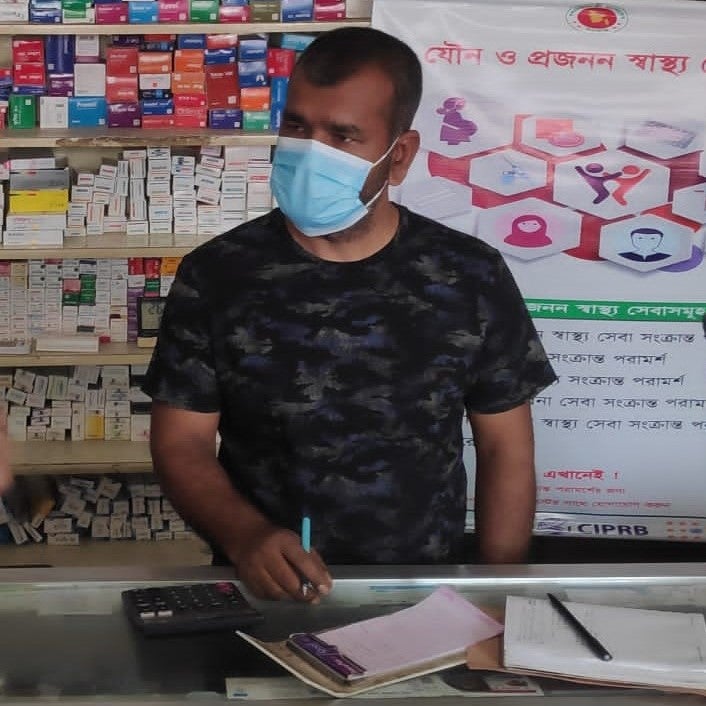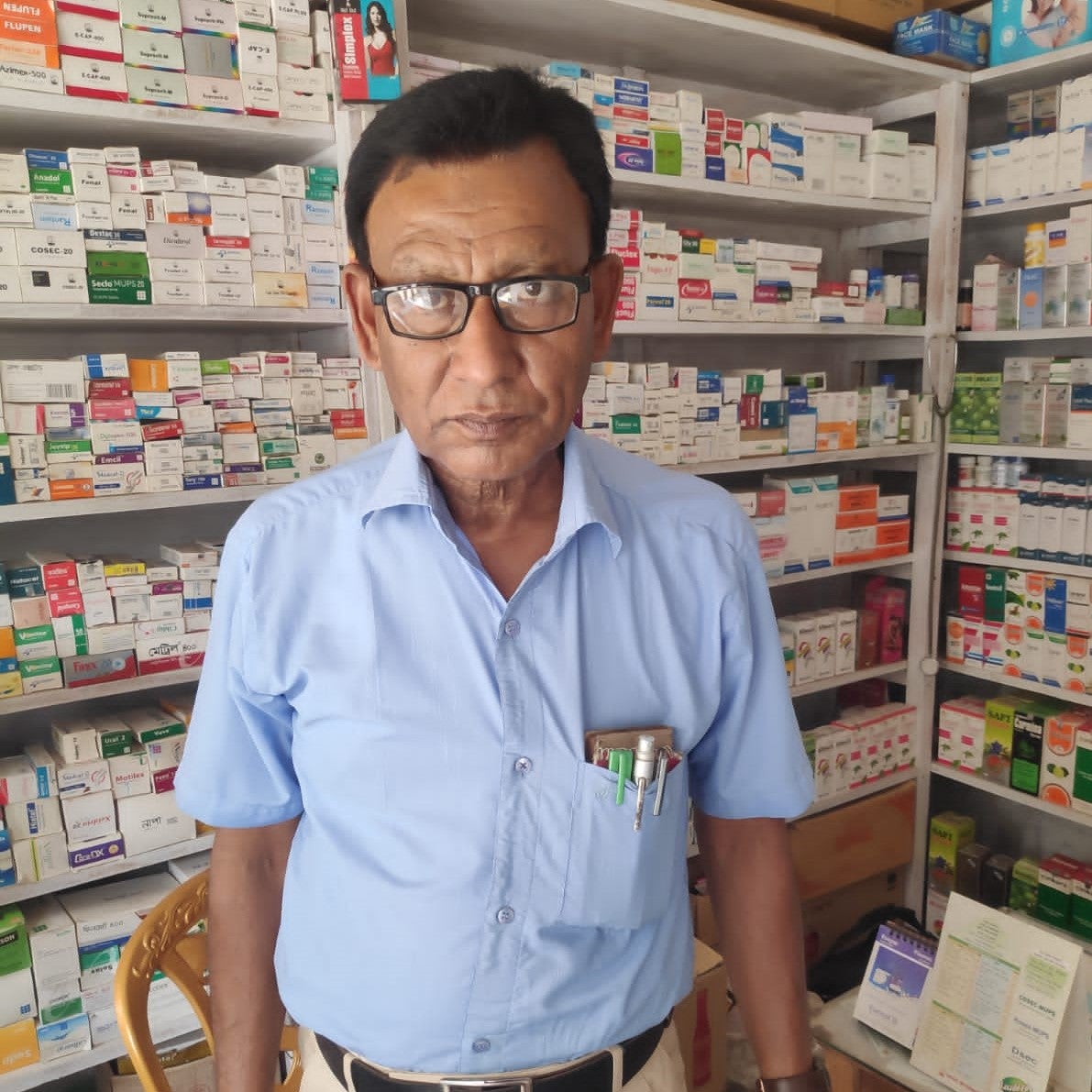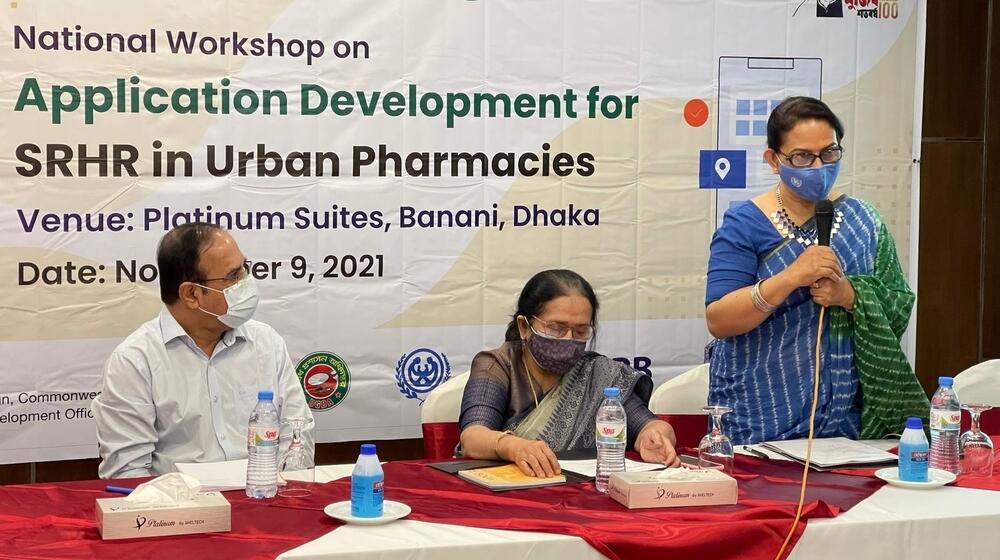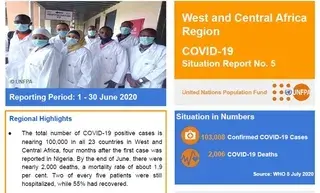Due to lack of resources or limited access to health facilities, a significant proportion of the population of Bangladesh relies on pharmacists for medical counseling. Although Bangladeshi law requires pharmacists to undergo at least three months of training before they can open their own pharmacy, pharmacies run by unlicensed pharmacists remain prevalent across the country.
As a result, irresponsible drug dispensing practices remain prevalent in the country. Furthermore, as the overwhelming majority of pharmacy owners in the country are male and issues related to sexual and reproductive health remain taboo in Bangladeshi society, the knowledge of pharmacists on issues like contraceptives and maternal health is often limited.
To address these issues, the Centre for Injury Prevention and Research, Bangladesh (CIPRB) has been implementing a project titled “Introduction of Sexual and Reproductive Health and Rights Information and Services in the Pharmacies Located in Urban Areas” with UNFPA’s technical support. As part of the project, 536 pharmacists from urban areas in Bogura and Bagerhat Districts have undergone a three-day training on providing sexual and reproductive health counseling, dispensing antibiotics and referring clients to health facilities for further support.
For Sultan Mahmud, a pharmacist from the Malotonigar neighbourhood of Bogura, the training marked the first time he had received reliable information on different contraceptives. “Before the training, I did not understand the purpose of the emergency contraceptive pill at all and I would sell it like a normal contraceptive,” he shares.

Prior to receiving the training, pharmacist Sultan Mahmud from Bogura had never been properly educated on different family planning methods.
During the training, he was astonished to learn that the pill was only reserved for special occasions, where the woman wanted to prevent a pregnancy after already having intercourse and how frequent use of the pill could result in long-term issues like infertility. “Now, I always inform my clients about the long-term effects of the pill and ask them to consult a gynecologist for further advice,” he says.
In the case of Ashok Kumar, a pharmacist from Bagerhat, the training completely reshaped his ideas about dispensing antibiotics. He had never heard that the development of bacteria resistant to antibiotics was linked to patients not completing the course of antibiotics prescribed to them by doctors.
“Previously, I was confused about whether patients should continue to use antibiotics for the duration mentioned in the prescription even if they began to feel better. Now I know how to advise them properly. I also never dispense antibiotics without prescription anymore, especially to pregnant mothers!” he states.
Even after 35 years of experience in running a pharmacy, Md. Shawkot Ali from Chalopara neighbourhood of Bogura had never thought that pharmacists could serve as a connecting point between pregnant women and nearby health facilities. During the training, he learned about the various warning signs that could indicate that something is wrong with a woman’s pregnancy. He is now referring his pregnant customers to nearby health facilities in case he suspects something to be wrong with them and educating them on the importance of using antenatal care services.

After participating in the training, pharmacist Md. Shawkot Ali has began to refer his pregnant clients to nearby health facilities.
‘‘If every pharmacist in our country was trained on sexual and reproductive health then they would be able to raise awareness among the general public and refer them to health centers in case of emergency,” he explains.
To ensure the impact of the project is long-lasting, UNFPA is currently supporting CIPRB in conducting monitoring visits to the various pharmacies run by the participants to ensure they are adhering to the guidelines provided in the trainings as they dispense antibiotics, provide sexual and reproductive health counseling and utilize existing referral systems with local health facilities.





